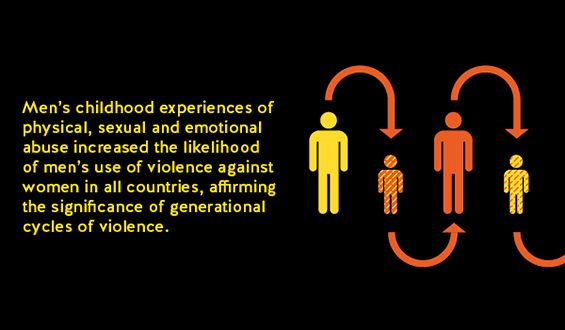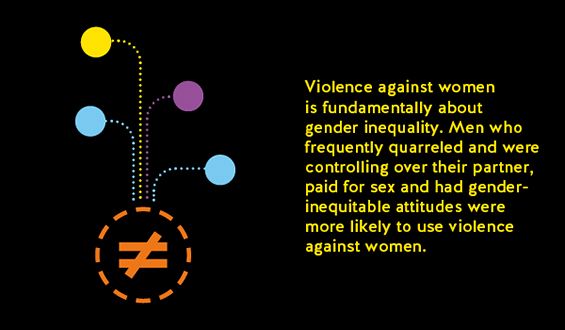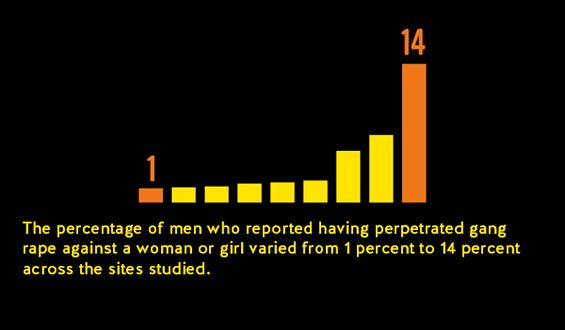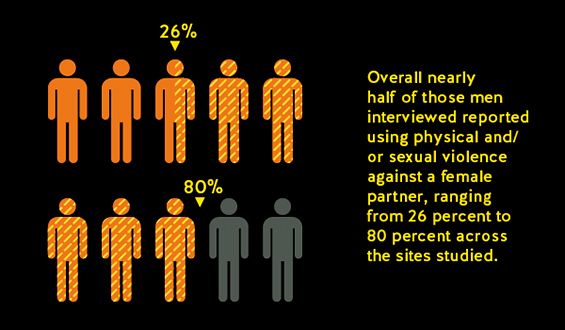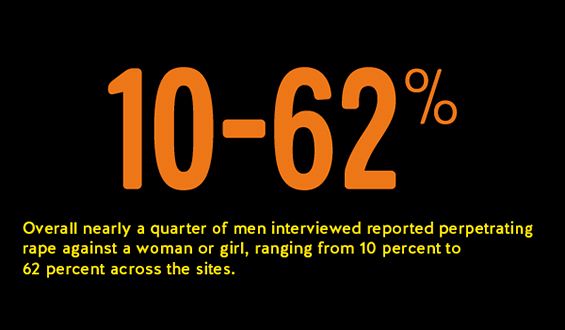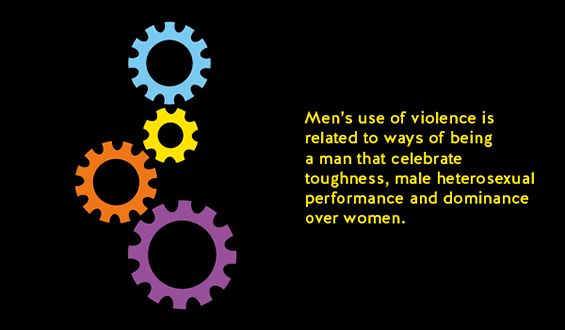Around one in four men across six countries in Asia and the Pacific have committed rape, according to a study published in The Lancet on Tuesday.
 ADVERTISEMENT
ADVERTISEMENT
 ADVERTISEMENT
ADVERTISEMENT
Each year 250,000 rapes are reported worldwide but a World Health Organization report previously found that one third of women worldwide claim to have been victims of domestic or sexual violence. However, there has so far been little research into the perpetrators of sexual assault and how many people are likely to engage in sexual violence during their lifetimes.
The Lancet study aims to change perceptions about the commonality of violence against women and to invoke extensive campaigns to prevent it.
The results are based on interviews with 10,178 men aged 19-49 from across Bangladesh, China, Cambodia, Indonesia, Papua New Guinea and Sri Lanka. During the interviews men were asked if they had ever forced a woman to have sex, or if they had ever forced sex on a woman who was too drugged or drunk to consent. The word “rape” was not used.
The study, which looks at both rape and intimate partner violence (IPV) in the six countries, was led by Dr Jewkes, a specialist of public health medicine at South Africa’s Medical Research Council. According to her results, around one in ten men – 11 percent –admitted having raped a woman who was not their partner. When they extended the study to include intimate violence towards a partner, the rate rose to nearly one in four, or 24 percent.
According to Jewkes’ study in The Lancet, men who had paid for sex, had a significant number of sexual partners, or had a history of physical violence were more prone to committing rape. The study also discovered that men who had suffered childhood abuse were more likely to commit rape. Jewkes spoke of the importance of promoting a culture of prevention where rape is concerned:
“In view of the high prevalence of rape worldwide, our findings clearly show that prevention strategies need to show increased focus on the structural and social risk factors for rape. We now need to move towards a culture of preventing the perpetration of rape from ever occurring, rather than relying on prevention through responses,” she said.
Charlotte Watts, head of the Gender, Violence and Health Centre at the London School of Hygiene and Tropical Medicine also voiced her support of prevention and stated: “It is not enough to focus on services for women.” She also discussed the idea of challenging traditional ideas of masculinity in some communities: “It may be that the culture where they grew up condones violence, but it’s not impossible to change that,” she said.
According to one man from Bangladesh, women should have sex with their husband whenever he wants it:
“Women shall do their job and men shall do theirs … After a long day of work, men return to the home. The wife should cook for her husband, should prepare water for the shower, then take meals and sleep together, show some affection. I always want this. [A woman’s only job is to] feed [her husband], chat with him and then sleep together.”
Photo: Daniel Feary
He highlighted the importance of obeying household rules: “A good marriage means a loving, caring, devoted and dedicated wife who can always put the husband’s family interest on top of anything else … If I am angry, I prefer to teach her an instant lesson. Although I sometimes feel bad about my conduct, it’s not a big deal. If she disobeys, she must be punished. That is not wrong at all.”
In 73 percent of the confessions, feelings of “sexual entitlement” were listed as the main reason for sexual violence. Over half of the men – 59 percent – claimed they did it for entertainment or fun. Of the men interviewed, 58 percent said that they had first raped someone as a teenager.
Approximately half of the men admitted to feeling guilty, however only 23 percent had been imprisoned for rape.
A second study looked specifically for unique patterns of behaviour between the different types of IPV, including physical abuse, sexual violence, emotional abuse (insults or verbal threats) and economic abuse (throwing a partner out of the house, or prohibiting them from working). Study leader Dr Emma Fulu of Partners for Prevention, discussed the ‘surprising’ nature of the results:
“Surprisingly, our results show that although some overlap exists, physical and sexual violence do not always appear to be committed together, or for the same reasons, in different regions,” she said. “This is likely to have profound implications for the way that interventions to prevent IPV are designed and carried out, because until now, it has very often been assumed that physical and sexual violence are part of the same pattern of behaviour, whereas our results show that isn’t necessarily the case.”
In total, 46 percent of men reported committing IPV. The highest results – 80 percent – were seen in Bougainville, Papua New Guinea.
Both reports were funded by several United Nations agencies as part of the UN’s ‘Multi-country Cross-sectional Study on Men and Violence in Asia and the Pacific’.















